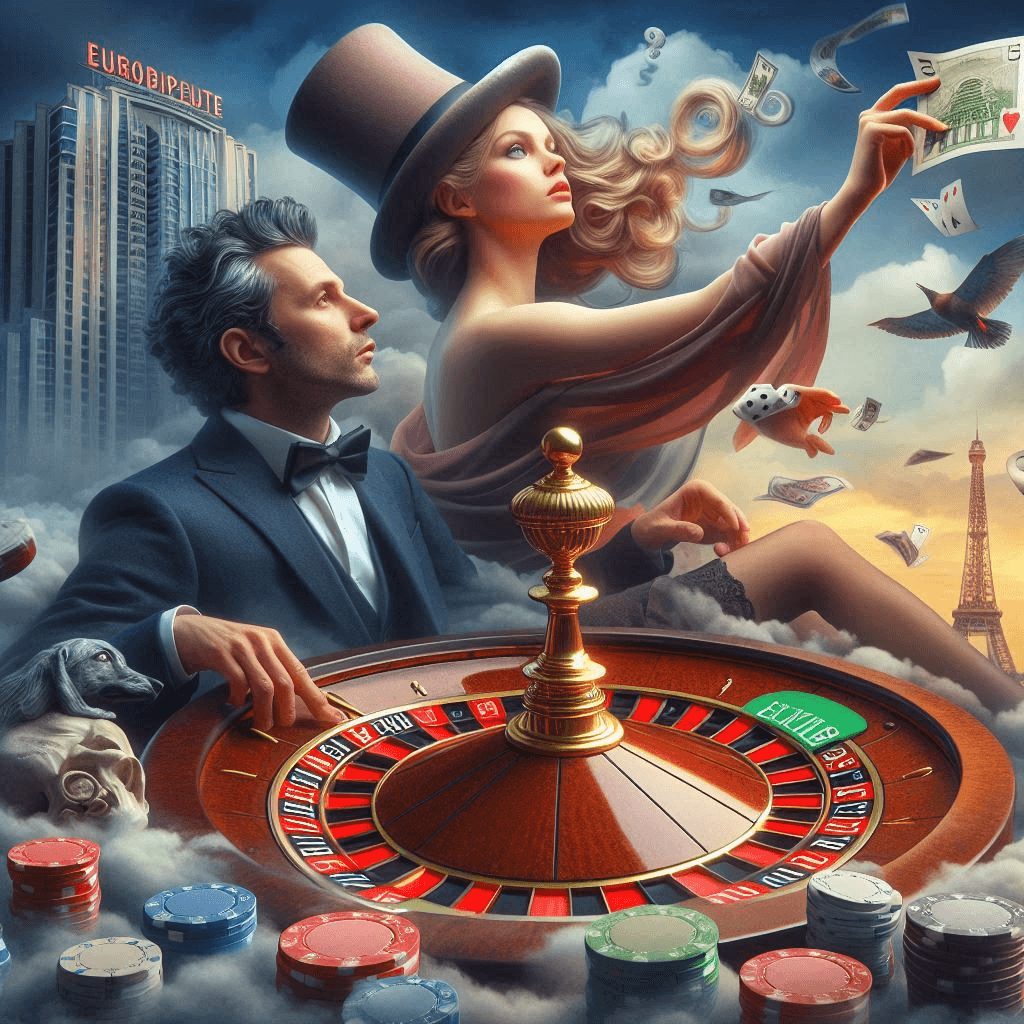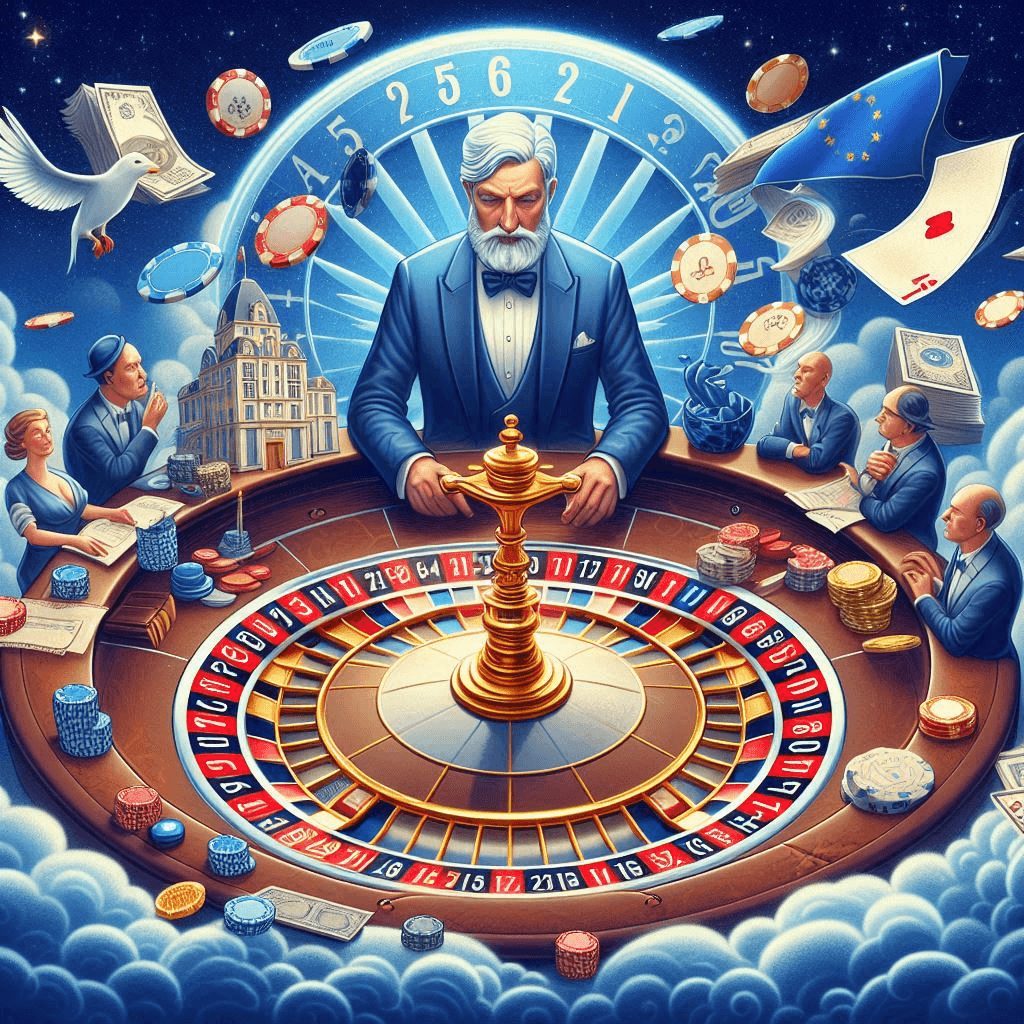In the captivating world of casino gaming, few games have captured the imagination of players and enthusiasts as profoundly as European roulette. This iconic wheel of fortune has been the subject of countless myths, misconceptions, and urban legends, often obscuring the true nature and nuances of this time-honored game.
As the curtain is drawn back, we embark on a journey to uncover the realities of European roulette, dispelling common myths and empowering players with a deeper understanding of this endlessly fascinating game.
The Evolution of European Roulette
To fully appreciate the realities of European roulette, it is essential to trace its rich historical roots. The origins of roulette can be traced back to the 17th century, with the game’s modern form emerging in the early 18th century in France.
The European variant, distinguished by the presence of a single zero pocket, gradually gained popularity across the continent, establishing itself as the standard version of the game in many regions. This single-zero design, in contrast to the American roulette’s double-zero layout, is a crucial factor that shapes the odds and gameplay dynamics.
Debunking Persistent Myths
Myth: Roulette is a game of pure chance, with no room for strategy.
Reality: While roulette is undeniably a game of chance, there are indeed strategies and techniques that savvy players can employ to enhance their understanding and decision-making. From leveraging probability calculations to adopting proven betting systems, the experienced roulette enthusiast can navigate the game with a heightened level of strategic awareness.
Myth: The house always has an unbeatable advantage in roulette.
Reality: The house edge in European roulette is indeed present, but it is not as overwhelming as some may believe. With a house edge of just 2.70%, the European variant offers players more favorable odds compared to other casino games, such as American roulette, which has a house edge of 5.26%. By making informed decisions and adopting sound betting strategies, players can minimize the house’s advantage and increase their chances of success.
Myth: Roulette wheels are rigged to favor the casino.
Reality: While there have been isolated incidents of wheel tampering or bias in the past, modern roulette wheels are engineered with strict quality control measures and regular testing to ensure fairness and randomness. Reputable casinos invest heavily in maintaining the integrity of their roulette wheels, as the trust and confidence of their players are paramount to their success.
Myth: Winning streaks are impossible to maintain in roulette.
Reality: While it is true that the outcome of each spin is independent and unpredictable, experienced roulette players understand that streaks, both winning and losing, can and do occur. Through disciplined bankroll management and the application of proven betting strategies, players can capitalize on favorable streaks and mitigate the impact of adverse ones.
Myth: Roulette is a game for high rollers and elites.
Reality: European roulette caters to a wide range of players, from casual enthusiasts to seasoned professionals. With betting limits that accommodate both low and high stakes, the game provides an inclusive environment where players of all bankroll sizes can participate and enjoy the thrill of the spinning wheel.
The Mathematics of European Roulette
At the core of European roulette lies a fascinating interplay of probability, statistics, and mathematics. By delving into the numbers, players can gain a deeper understanding of the game’s mechanics and make more informed decisions.
The European roulette wheel consists of 37 pockets, numbered 0 and 1 through 36. The probability of any single number being selected on a given spin is 1/37, or approximately 2.70%. This single-zero design is a crucial factor that sets the European variant apart from its American counterpart, which features an additional double-zero pocket, resulting in a higher house edge.
In addition to understanding the probability of individual numbers, roulette enthusiasts can also explore betting strategies that leverage the game’s inherent mathematical properties. From simple outside bets, such as red/black or even/odd, to more complex systems like the Martingale or Fibonacci strategies, players can employ various approaches to optimize their gameplay and manage their bankroll.


Responsible Gambling and Risk Management
While the allure of roulette is undeniable, it is essential to approach the game with a responsible and disciplined mindset. Responsible gambling involves setting realistic expectations, managing bankroll effectively, and maintaining a balanced perspective on the game’s inherent risks and rewards.
Players should establish a clear understanding of their personal risk tolerance, set strict limits on their betting, and never wager more than they can comfortably afford to lose. By adopting a responsible approach, players can enhance their overall enjoyment of the game and minimize the potential for financial or emotional harm.
Navigating the Roulette Table: Strategies and Tactics
As with any complex game, European roulette offers a multitude of strategic considerations that can enhance the player’s experience and potentially improve their chances of success. From mastering the fundamentals of chip placement to exploring advanced betting techniques, the skilled roulette player can leverage a diverse arsenal of tactics to navigate the game.
One of the foundational strategies in European roulette is the understanding of betting options and their corresponding payouts. From straight-up bets on individual numbers to sector-based wagers, such as columns or dozens, players can diversify their approach and tailor their betting to align with their risk tolerance and desired outcomes.
Beyond the basic betting options, roulette enthusiasts can delve into more sophisticated strategies, such as the Martingale system, the Fibonacci sequence, and the d’Alembert method. While these systems come with their own advantages and limitations, they offer players a structured framework for managing their bankroll and adjusting their bets based on the game’s dynamics.
It is crucial to note that while these strategies can provide a valuable foundation, they do not guarantee consistent wins. Roulette, at its core, remains a game of chance, and players should approach any betting system with a clear understanding of its risks and limitations.
The Social and Experiential Aspects of Roulette
Beyond the mathematical and strategic elements, European roulette also holds a unique place in the realm of casino gaming due to its rich social and experiential aspects. The roulette table often serves as a hub of excitement, camaraderie, and shared anticipation, attracting players from diverse backgrounds who come together to partake in the thrill of the spin.
The social dynamic at the roulette table can significantly enhance the player’s overall experience. Interactions with fellow players, the camaraderie of celebrating shared wins, and the contagious energy of the game can all contribute to a heightened sense of engagement and enjoyment.
Moreover, the physical atmosphere of a well-designed roulette table, complete with the spinning wheel, the clattering of chips, and the anticipation of the ball’s final resting place, can create a captivating ambiance that transports players to a realm of enchantment and adventure.
The Evolution of European Roulette in the Digital Age
As the gaming industry continues to evolve, the landscape of European roulette has undergone a remarkable transformation in the digital age. The advent of online and mobile gaming platforms has brought this timeless game to the fingertips of players around the world, expanding its accessibility and introducing new layers of innovation and convenience.
The digital revolution has not only made European roulette more widely available but has also enabled the integration of cutting-edge technologies that enhance the player experience. From live dealer roulette, which offers a seamless online replication of the traditional casino environment, to the incorporation of virtual reality and augmented reality elements, the digital realm has breathed new life into the game, catering to the ever-evolving preferences and expectations of modern players.
Conclusion
In the captivating world of European roulette, the realities often transcend the myths and misconceptions that have long surrounded this iconic game. By delving into the game’s rich history, mathematical foundations, and strategic nuances, players can develop a deeper understanding and appreciation for the true nature of European roulette.
Through this exploration, we have uncovered the truth behind the persistent myths, revealing the game’s inherent fairness, the potential for strategic gameplay, and the diverse range of experiences it offers. As players embark on their roulette journeys, armed with this newfound knowledge, they can confidently navigate the tables, maximize their enjoyment, and potentially enhance their chances of success.
Ultimately, the essence of European roulette lies not only in the spinning wheel and the thrill of the spin but also in the countless stories, strategies, and connections that players forge within this timeless and ever-evolving realm of casino gaming.
FAQs
-
What is the house edge in European roulette?
The house edge in European roulette is 2.70%, which is lower than the 5.26% house edge in the American roulette variant.
-
Can players use strategies to improve their chances in roulette?
Yes, while roulette is a game of chance, experienced players can employ various strategies and techniques, such as betting systems and probability calculations, to enhance their decision-making and potentially improve their chances of success.
-
Are roulette wheels rigged or biased in modern casinos?
Modern roulette wheels are engineered with strict quality control measures and regular testing to ensure fairness and randomness. Reputable casinos invest heavily in maintaining the integrity of their roulette wheels.
-
Can players win consistently at roulette?
Winning consistently at roulette is challenging, as the game is fundamentally based on chance. However, by adopting responsible gambling practices, managing their bankroll effectively, and leveraging proven strategies, players can potentially increase their chances of success and minimize their losses over the long term.
-
Is European roulette only for high rollers?
No, European roulette caters to a wide range of players, from casual enthusiasts to seasoned professionals. The game offers betting limits that accommodate both low and high stakes, providing an inclusive environment for players of all bankroll sizes.
